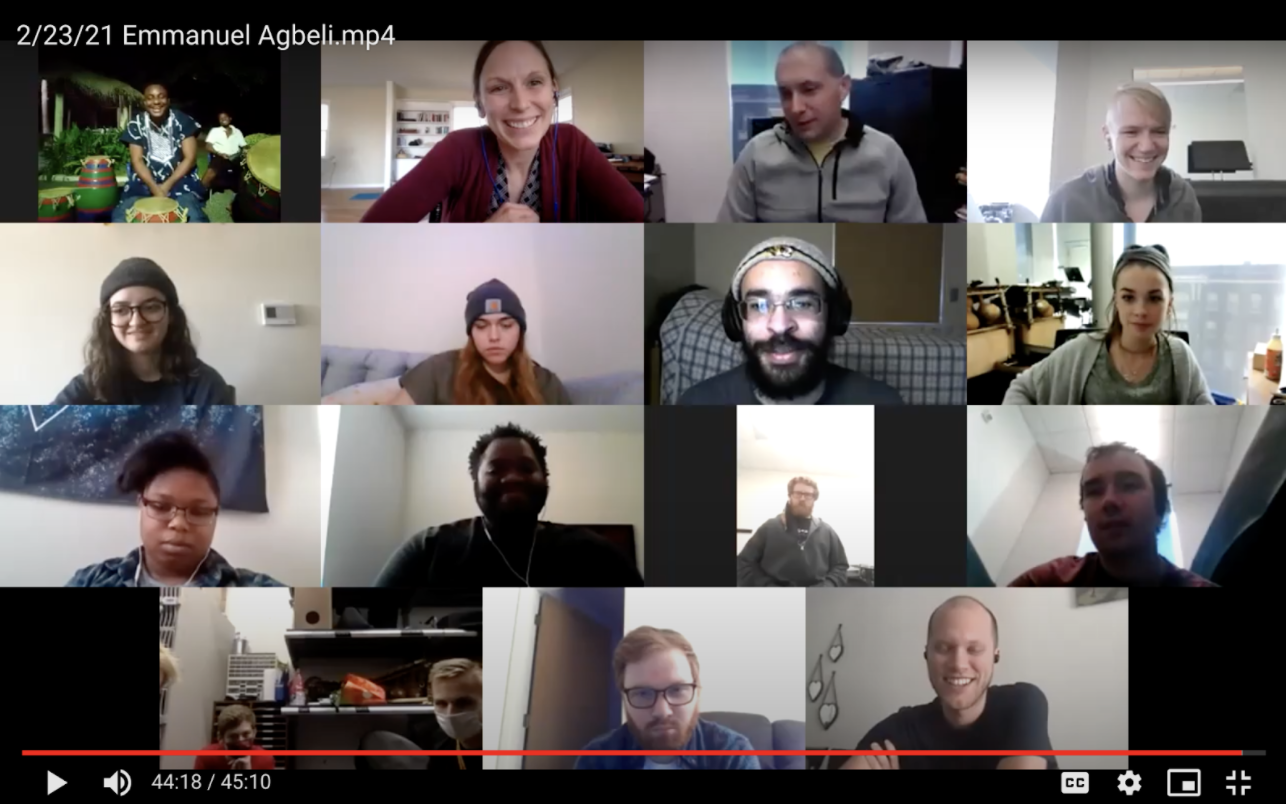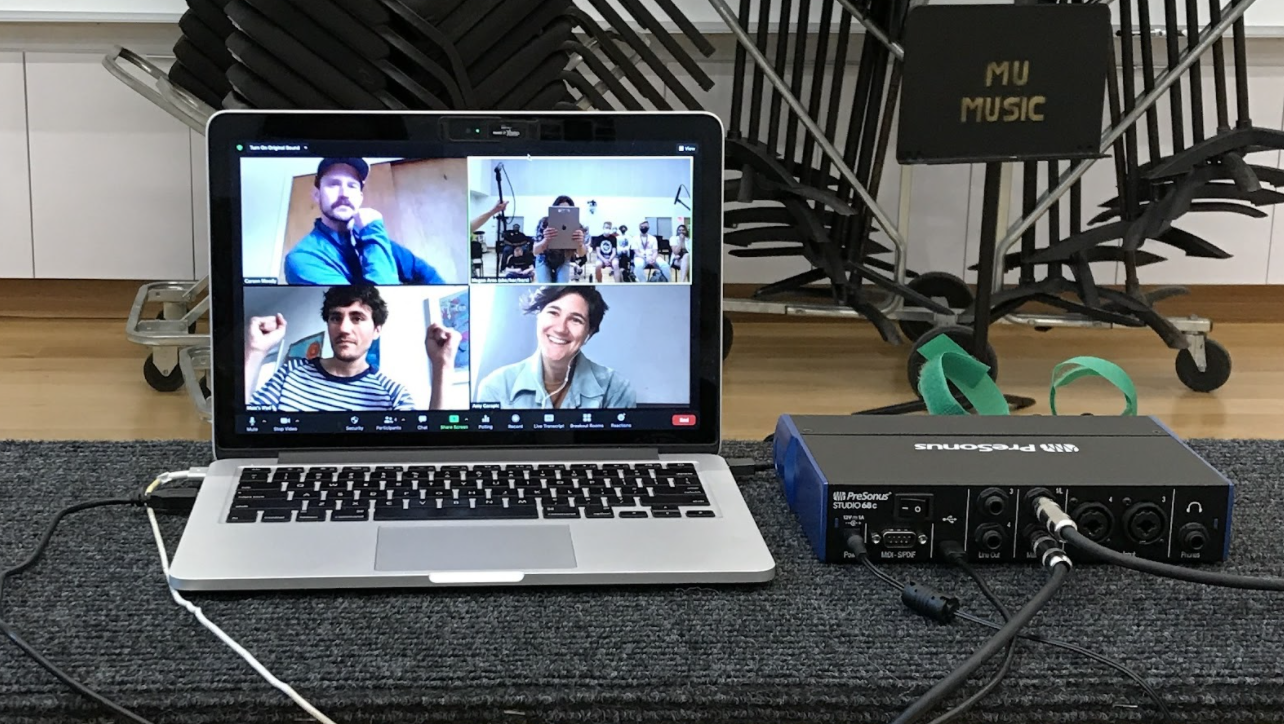How to Leverage Virtual Learning Post-COVID
The Lightpost is a reader-supported blog. When you buy through links on our website, we may earn an affiliate commission.
The last thing we all want is to stay in our virtual bubbles. However, as a student, I feel that some unique and valuable musical experiences resulted from our time spent together in the virtual space. Below, I offer some new channels of collaboration and performance that I feel should be retained on some level moving forward.
Virtual Studio Classes
In our Mizzou studio, we invited virtual guests from around the US (and the world) to our class times. These conversations, only possible through a virtual platform due to geographical distances, sparked new conversations each week and exposed the studio to some fantastic educators and performers.
Throughout various guests, we watched professionals perform their crafts such as Ewe drumming and frame drumming, listened to tips on how to sculpt our careers from leading names in percussion, learned about freelancing and the necessary equipment needed to record our own videos, heard from percussion composers about their processes, and even took a virtual tour of the Black Swamp studio! I found the most valuable outcome from these talks were the connections they made for our studio. Each guest made themselves available for contact after the class, and I even ended up starting regular virtual lessons with one of our guests because of this.
Mizzou Studio Class with Emmanuel Agbeli, Director of the Dagbe Cultural Institute and Arts Center in the Village of Kopeyia in Ghana, West Africa.
Virtual Collaboration
In collaboration with the Kopeyia-Bloomfield schools in Ghana, West Africa, our Mizzou World Percussion Ensemble was able to virtually accompany student dancers from across the globe. Opportunities for this type of collaboration offer authentic applications in the study of Non-Western percussion, especially when it coincides with long-lasting relationships with communities around the world.
These virtual collaborations could also take place with other collegiate studios, or even with local elementary schools. I’ve seen incredible examples of virtual collaborations take place in the form of anything from casual social media videos between friends, to entire chamber ensembles shifting their focus to virtual performances of works pieced together by individual recordings from performers living across the nation from one another.
Virtual Residencies
Funded by our student organization, Mizzou Percussion Society, we held a virtual residency with Tigue, a Brooklyn-based percussion trio, where we met virtually with the group twice a week during percussion ensemble time in order to learn and perform their pieces. This virtual residency was largely successful and greatly cut down on the travel/lodging costs of hosting which can be quite expensive for out-of-state guests.
Essential technical needs included :
laptop
projection device
ethernet cable for stable connection
interface for mics and speakers
a pair of mics
room speaker
We Zoomed in from a laptop or personal devices for break-out sessions. As a student benefiting from this experience, I felt that since we were not restricted by the amount of time the group was in town, our bi-weekly meetings spanning an entire month provided an experience that we could live in and build upon throughout time, while allowing closer connections with our guests.
Live-Streamed Performances
In culmination of our Tigue Residency, we live-streamed a performance of us playing the pieces we learned. While the technical requirements of live-streaming each concert are likely too much to sustain post-pandemic, live-streaming greatly increases visibility to studios, while also allowing for more collaborations between composers and performers. When choosing which concerts to live-stream, I would suggest prioritizing those that involve newly commissioned works. In our concert which consisted of pieces from the “Everybody Hits” commissioning project, many of the composers watched live and shared the experience with us.
These moments helped our studio feel united with the broader musical community. After living through these new experiences made possible by our virtual world, I feel rejuvenated by the connection it has provided, and I hope to see us continue these networks of support, even when we find ourselves less physically distant.




